Heart Surgeon Is Tired Of Hearing That "Gender Pay Gap Doesn't Exist", Exposes The Sexist Medical Industry (Picture)
The wage gap between men and women is very real, even in our oh-so-modern Western society. However, not everyone believes it is. And some think that it doesn’t exist in prestigious areas like medicine. Well, Dr. Nikki Stamp, a heart and lung transplant surgeon from Australia, put them right in a viral Twitter thread. She did what all good scientists do: she followed the evidence. Have a read through her arguments below and let us know what you think.
According to Dr. Stamp, the wage gap is deeply enrooted in the entire job industry: it’s even prevalent in very prestigious parts of the job market. And if inequality exists there, well, imagine how visible it is in other areas, too.
Eddy Ng, the James and Elizabeth Freeman Professor of Management at Bucknell University in Lewisburg, Pennsylvania, went into detail with Bored Panda about how women are underrepresented at senior levels in jobs. “They don’t fit the prototype of what leaders look like. They often lacked the preparation, not in terms of qualifications, but the socialization necessary to ascend to elite levels. Some of these are political skills, some are sponsorships, and some are social capital acquired at the golf courses and locker rooms, and few women partake in these socialization activities.”
Image credits: jeshoots
Dr. Stamp provided a bucketload of evidence as to why the gender pay gap exists in medicine and what can be done about it
Image credits: drnikkistamp
Image credits: drnikkistamp
Image credits: drnikkistamp
Image credits: drnikkistamp
The Gender Gap in a Surgical Subspecialty
Image credits: drnikkistamp
Pay gaps in medicine and the impact of COVID-19 on doctors’ careers
Image credits: drnikkistamp
Sex-Based Disparities in the Hourly Earnings of Surgeons
Image credits: drnikkistamp
Image credits: drnikkistamp
A Structured Compensation Plan Improves But Does Not Erase the Sex Pay Gap in Surgery
Image credits: drnikkistamp
Wages and Women in Health Care: The Race and Gender Gap
Image credits: drnikkistamp
Image credits: drnikkistamp
What’s driving the gender pay gap in medicine?
Image credits: drnikkistamp
Gender pay gap growing
Image credits: drnikkistamp
How to Close the Gender Pay Gap in U.S. Medicine
Image credits: drnikkistamp
Image credits: drnikkistamp
Image credits: drnikkistamp
Image credits: drnikkistamp
According to professor Ng, “Women make less than men because they are concentrated in lower-paying professions or lower-paying industries, even for female executives and CEOs. Think CEO for a cosmetics company vs. CEO for a manufacturing company.”
He continued: “Taste discrimination—paying women less than men for doing the same job—is another factor. Women rely on other women for sources of (compensation) information and mentorship. This in turn has the unintended effect of receiving inaccurate/discounted information from women mentors who are being paid less themselves, and then forming lower expectations. Inaccurate information, lower expectations, and negotiation styles lead women to negotiate lower salaries at the start of their careers, and this gets magnified as women progress through their careers. Career interruptions (to start a family) also exacerbate the pay gap. and men rarely interrupt their careers to start a family.”
Professor Ng also pointed out that racialized women are greatly affected by the disruptions that the pandemic had on the job market because they are “often employed in low skill jobs and in industries that are primed to be automated. Think meatpacking, grocery shopping, and other service-based jobs. Here’s an example. The pandemic accelerated the automation because of health and safety needs. It also temporarily or permanently eliminated many service and hospitality jobs because of lockdowns.”
Dr. Stamp explained that some of the ways that could help fix the income inequality in medicine could be to have better pay transparency, sponsor women, and promote employees equally.
She also said that generally abolishing gender bias in medicine is something that we should strive towards (though that’s unlikely to happen overnight even with the best of intentions). What’s more, better research and reporting of salaries in medical fields could help with transparency issues. In other words, if you know what your colleague is getting paid, you’ll start asking questions why you’re not for the same work that you do.
The Harvard Business Review suggested that the pandemic reversed a lot of the progress toward greater gender equality that had been achieved over the past few years. According to them, women’s jobs are a whopping 1.8 times more vulnerable during the Covid-19 pandemic than men’s are.
“Women make up 39% of global employment but account for 54% of overall job losses as of May 2020,” HBR writes.
What’s more, Forbes explains that women take on the vast majority of extra chores, childcare, and education for their families at home. In short, there’s a disproportionate division of labor at home between partners.
Here’s how people reacted to Dr. Stamp’s viral Twitter thread and insights
Image credits: akuhabaki
Image credits: Silfy_Star
Image credits: justinerogers
Image credits: w1lko21
Image credits: SallyMayweather
Image credits: chelsairitops
Image credits: RedBearStandin1
Image credits: jennie0501
In an earlier interview, we spoke more with Professor Ng about how the pandemic has unequally affected women in the workforce and why.
Professor Ng explained that women are “overrepresented in lower-paying and precarious jobs.” Areas like retail, service, and hospitality have far less job security and benefits. “Men on the other hand are found in industries that are deemed essential, such as transportation (delivery) and construction,” he said.
The Covid-19 pandemic, as well as the massive restrictions on businesses and movement, forced many retail and hospitality businesses to scale down. Others went bankrupt. This meant that a large number of women were laid off from their jobs or displaced. According to Professor Ng, the situation is even worse for women of racialized backgrounds.
Unfortunately, the coronavirus lockdowns didn’t lead to greater gender equality that some people expected to see.
“Women, even those in professional and managerial jobs, continue to take on a second shift (caring for family) after the first shift at the office. We continue to subscribe to gender roles, even in many egalitarian societies,” he said, adding that this is one of the reasons for the “persistent pay gap and an underrepresentation of women in senior management and higher-paying jobs.”
He added that men’s higher-paying careers are prioritized over women’s (seen as “supplemental income”) during lockdowns. “Women reorganize their work around family demands, men often do not. Unequal division of labor is exacerbated when a family could no longer access paid help (COVID restrictions), and women will have to pick up the slack.”
Why do you think the wage gap between men and women exists, dear Pandas? Were you surprised that the medical field isn’t immune to the gender wage gap? What do you think could be done to realistically reduce income inequality in medicine in other areas? Were you ever a victim of sexism at the workplace when it came to your wage? We’d love to hear your thoughts on everything.

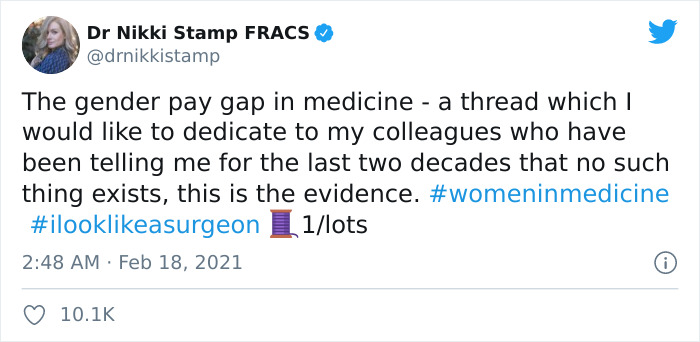
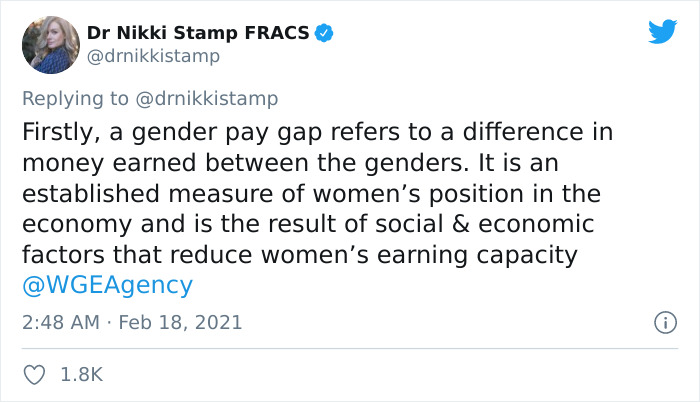
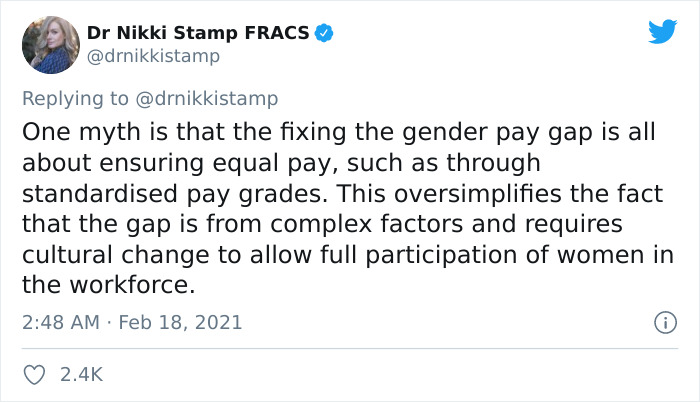
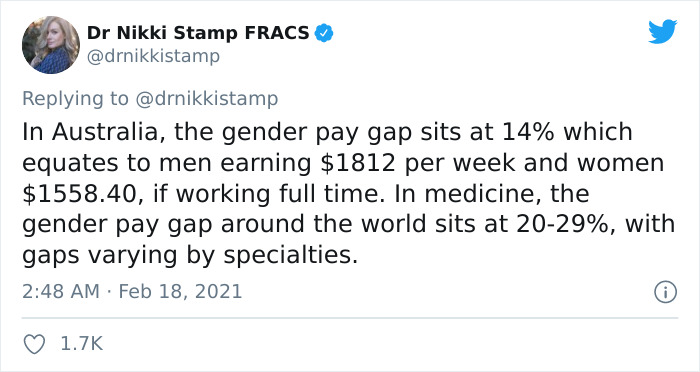
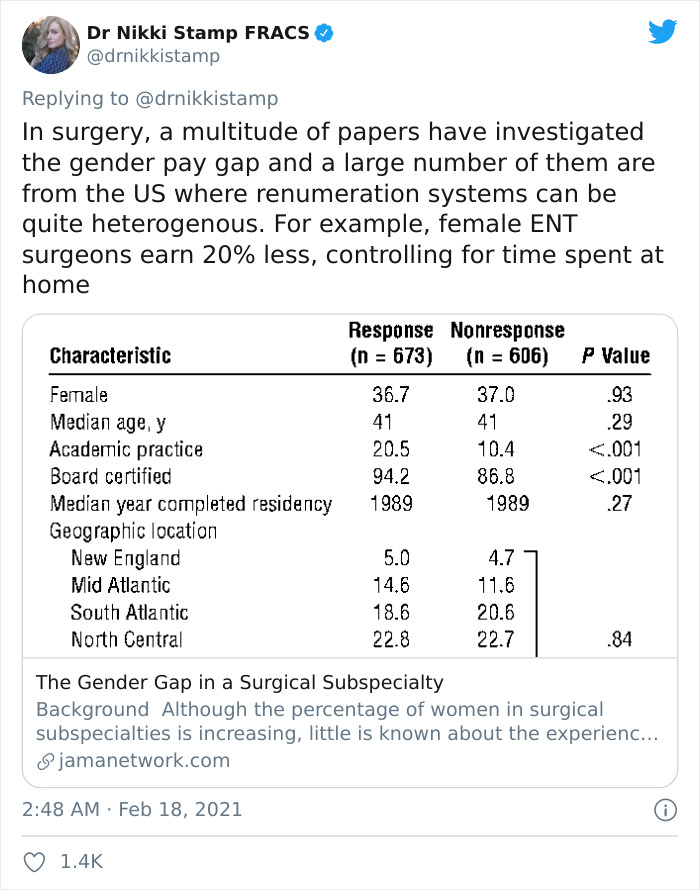
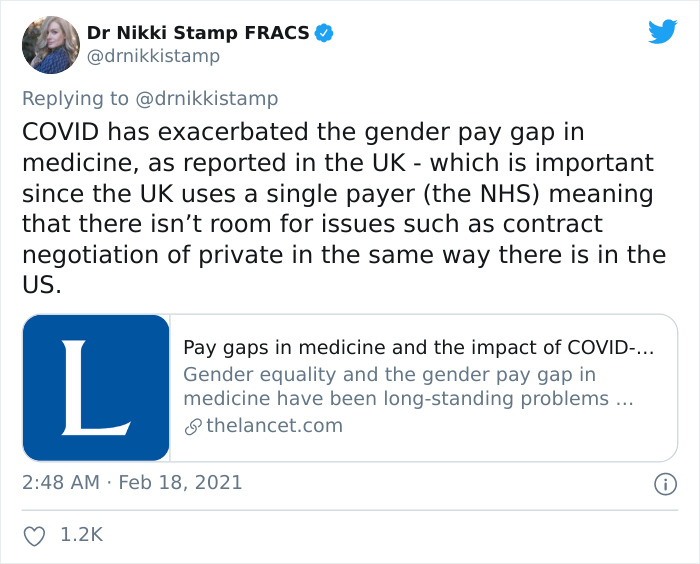
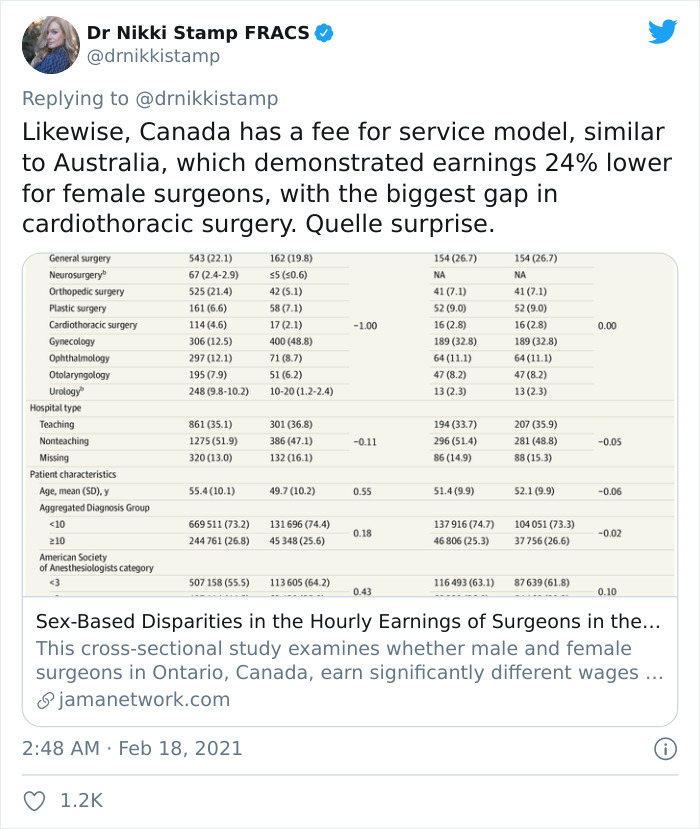
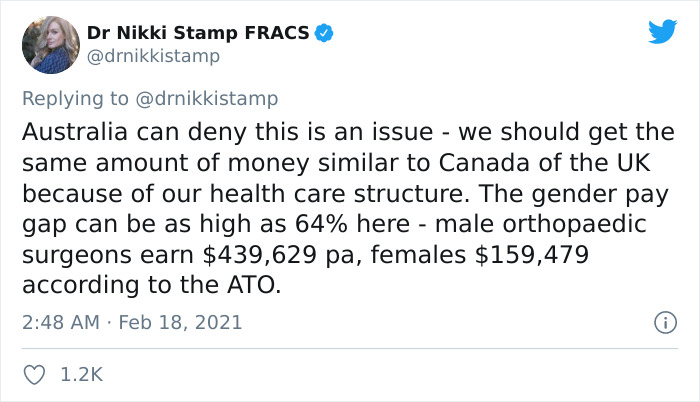
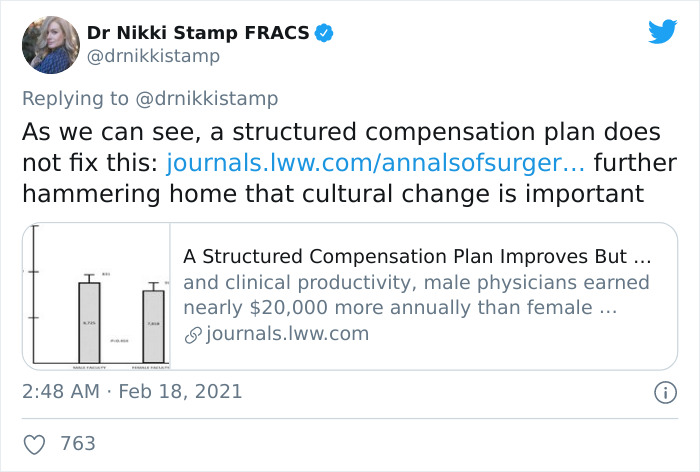
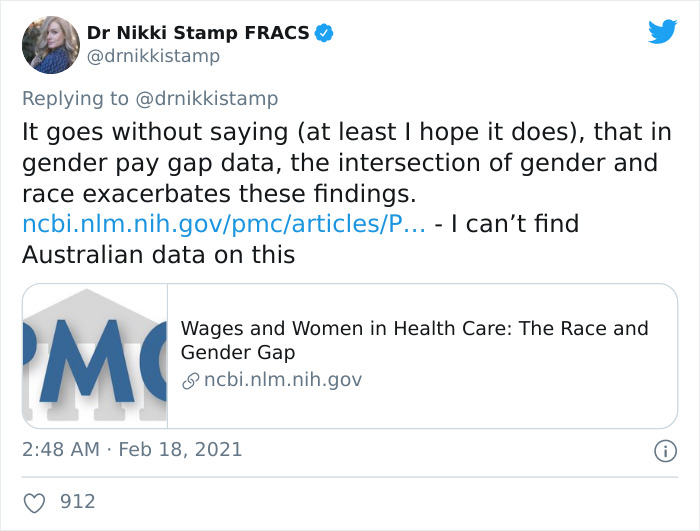
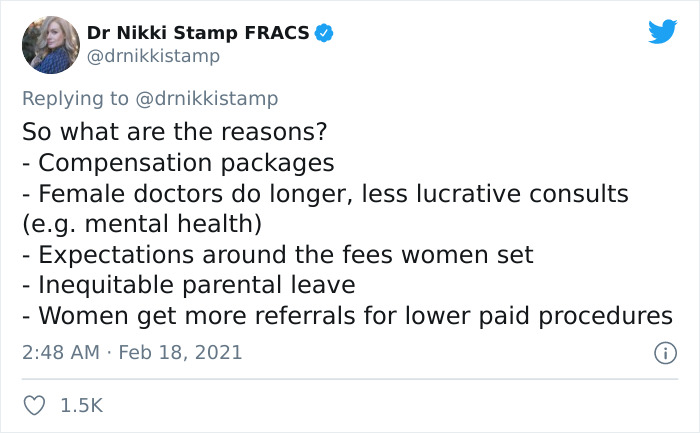
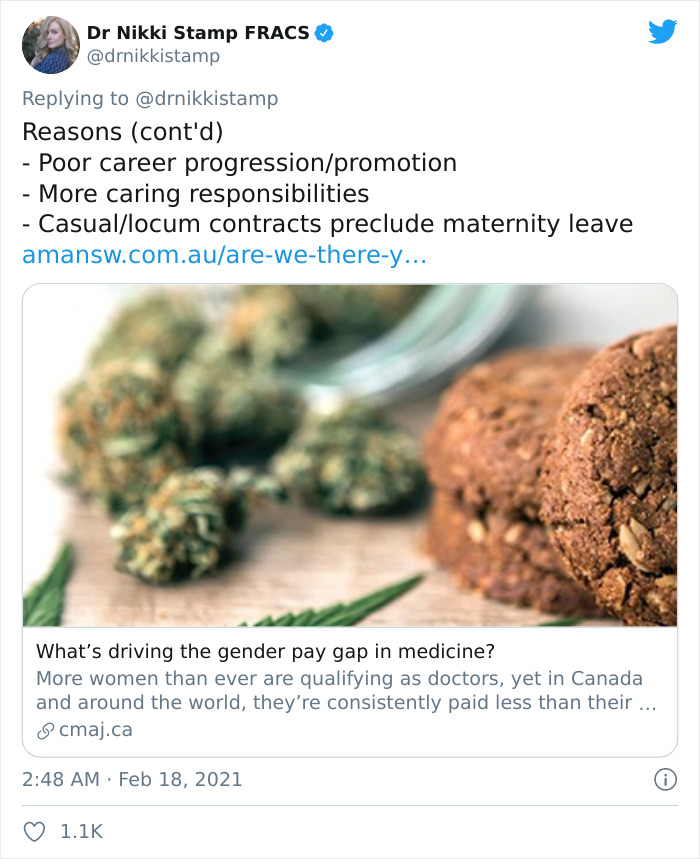
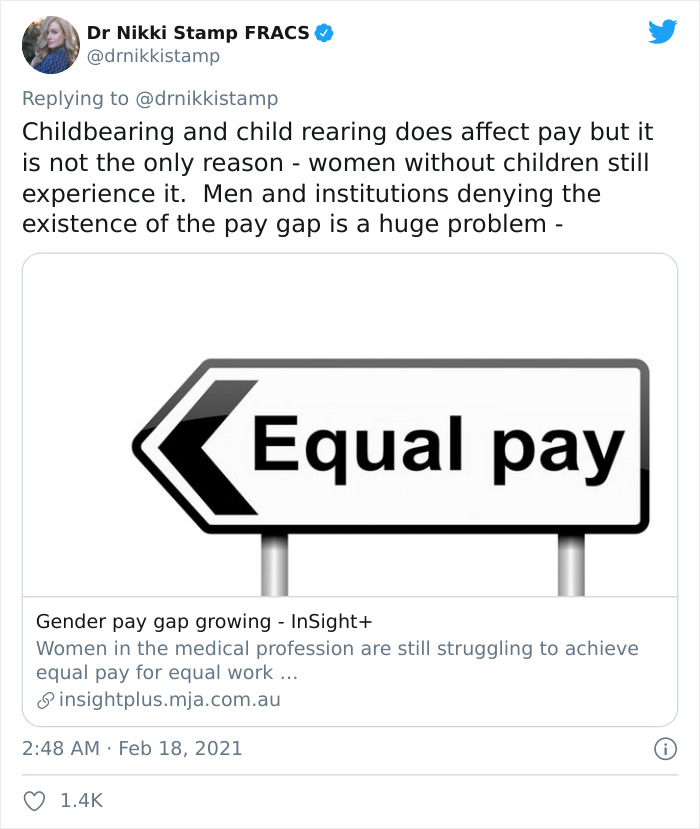
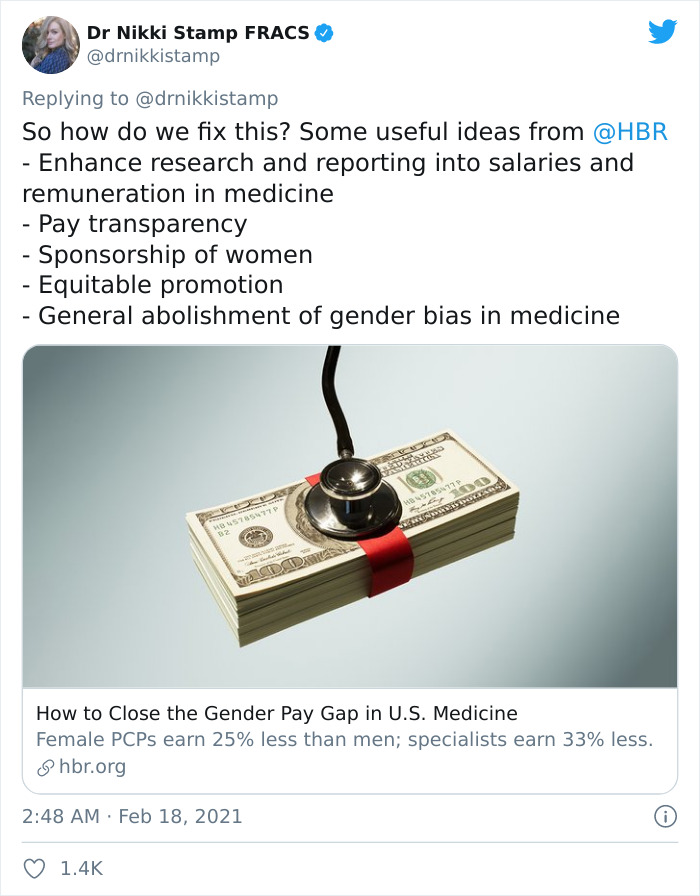
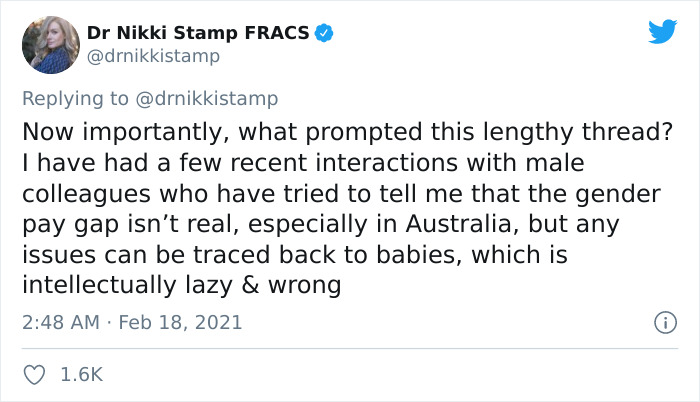
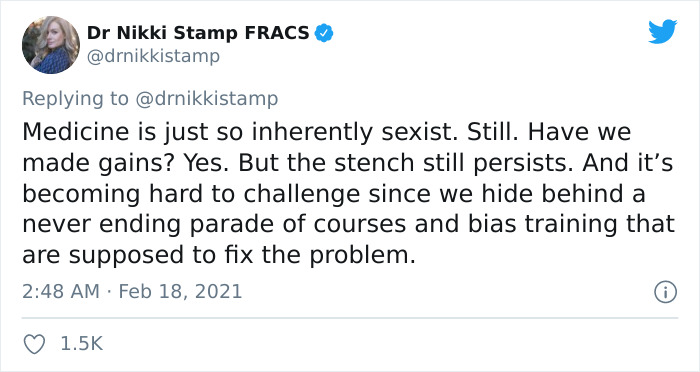
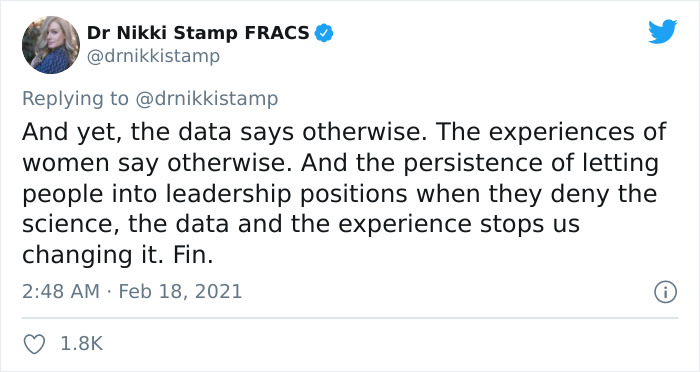
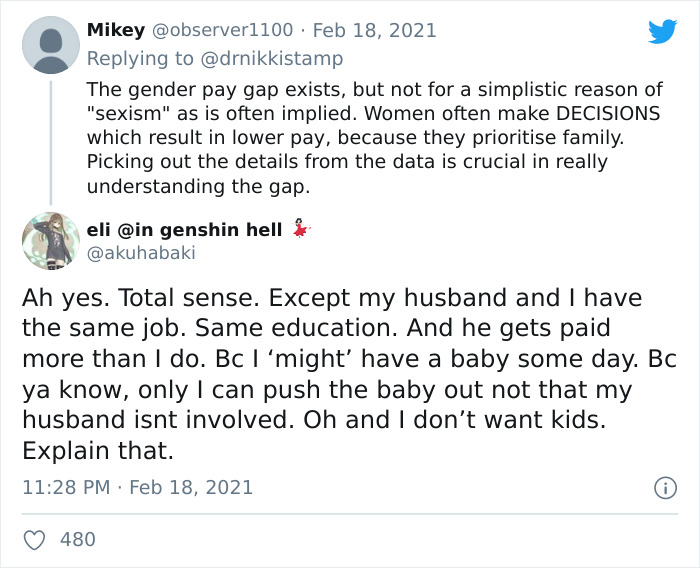
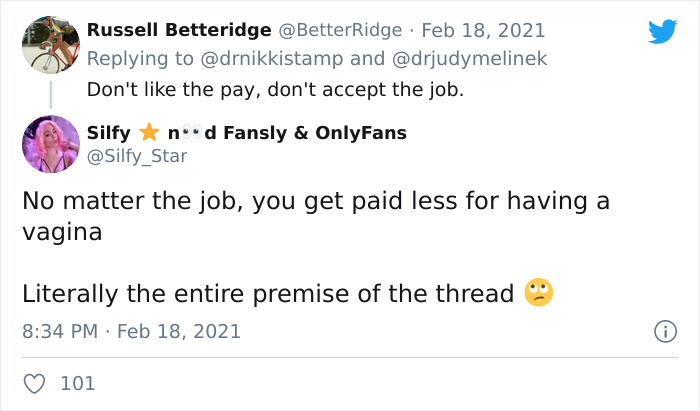
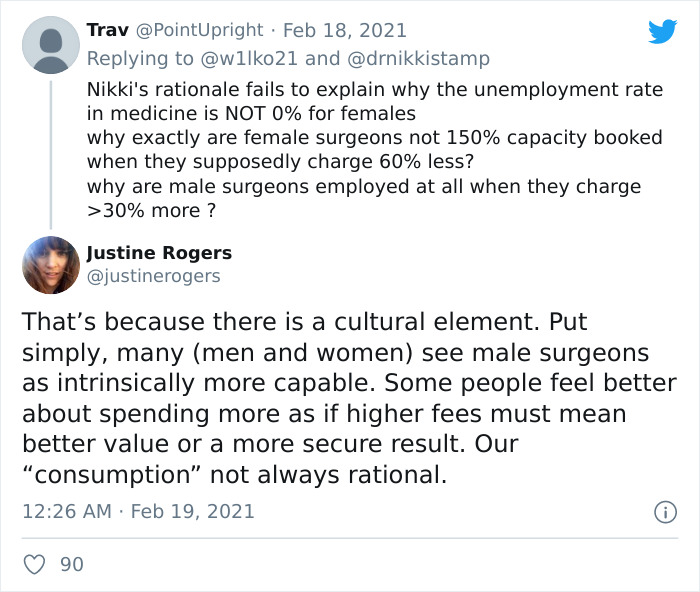
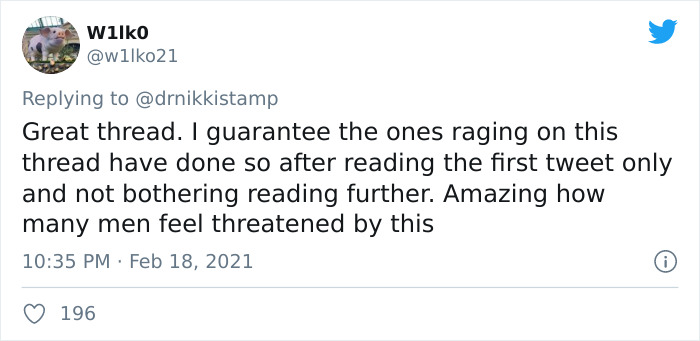
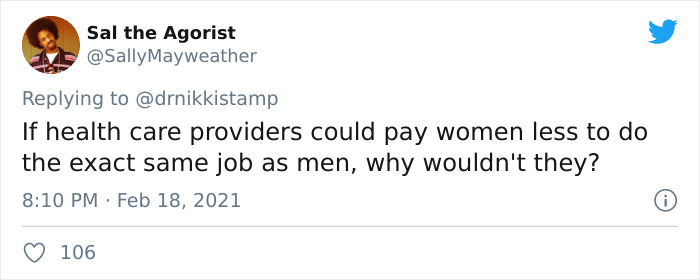
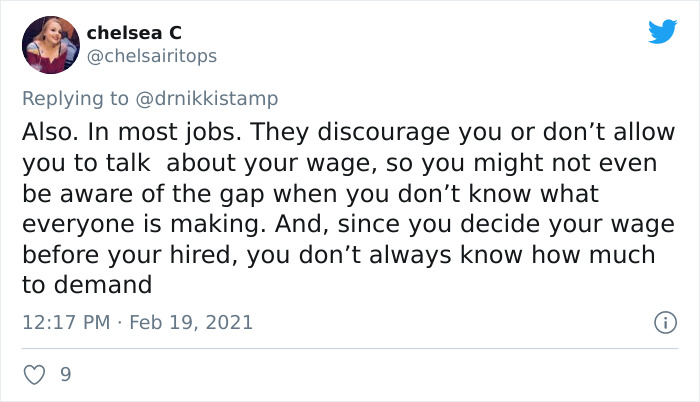
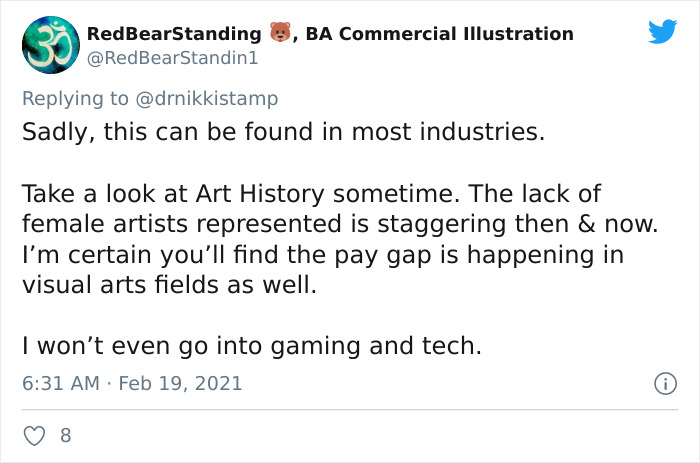
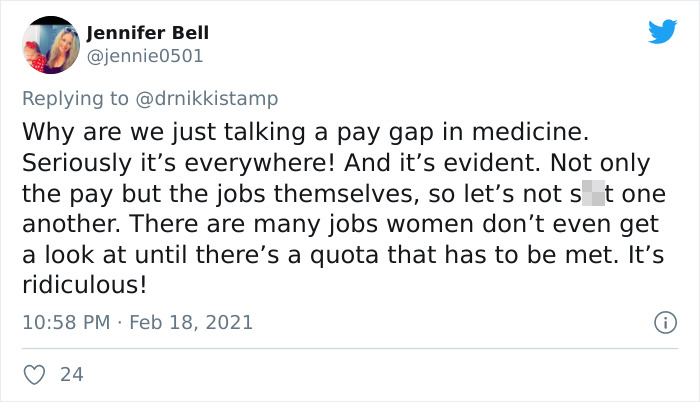

No comments